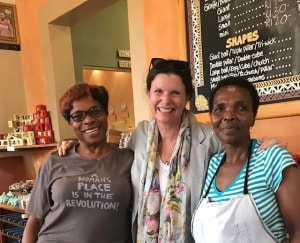
To be able to cut one’s living expenses in half seems like the impossible dream. How would you like to go from paying $1300 per month to share a small, cramped two-bedroom apartment with two others in a major city in the developed world to a spacious 2 bedroom apartment in an Asian capital city, with utilities and internet paid and no roommates, for $300 per month? You can. I just finished reading Tim Leffel’s new book A Better Life for Half the Price. It shows how it can be done.
Tim, a well-known travel writer and author, has previously written, among other books, World’s Cheapest Destinations. He also writes the poplar Cheapest Destinations blog. His new book is not only inspirational it is a highly useful guide for, as he says, “how to turn your dreams and desires into reality”. It is written in a breezy, practical and informative style that is a pleasure to read and digest.

Tim writes from experience. He and his family moved to Guanajuato, Mexico a couple of years ago. Two years prior to the move they had spent a year living in Central Mexico and then relocated home to the USA. The short-time back home proved financially difficult. The family’s cost of living sky-rocketed. They decided to move back to Mexico.

Many books about living internationally are more about real estate promotion than they are impartial and unbiased guides. A Better Life at Half the Price is not. It is also not specific to one area and includes comments and feedback from over 50 expatriates who have halved their monthly expenses. The expatriates share their stories of how they live and how they have accomplished their lifestyle. They do not sugar-coat their experiences. They explain the challenges they have faced as well as the solutions. The expatriates who share are of diverse ages and backgrounds; retirees, teachers, doctors, entrepreneurs, bartenders and “former cubicle dwellers”.

The book does not imply that an international move is for everyone. In fact one of the chapters, “Are You Cut Out for This Life?”, lays-out some good reasons for not moving depending upon your mindset, personality and current circumstances. It offers points to consider while you are deciding if this is for you. Another chapter, “The Importance of a Trail Run”, discusses how essential it is to travel to the location that interests you and spend some time there getting to know the place and the people.
Other chapters include practical information about choosing your destination, planning expenses and budgets, family life and pets and even ideas on how to make a living and obtain visas.
When he begins discussing countries the author extensively covers eighteen countries in Latin America, Asia and Europe. As he says, “the cheapest cities on the planet are not exactly paradise” and he wants to guide the reader “to a place that is a bargain, but is a pleasant and stimulating place to settle down in as well, maybe even a place where you would raise a family.”

Each chapter describing the eighteen countries begins with a list of the most popular cities and towns with expatriates in the subject country. Information is broken down into sections outlining the current costs of Housing, Health, Food and Drink, Transportation, Other costs i.e., utilities, internet, house cleaning, water, cell phone, entertainment, etc. Visas – how to get them and the length of the stay – are also discussed. Both the pros and cons of living in each destination are considered. At the end of each chapter is a list of useful resources pertinent to the country covered in the chapter.
Countries that are not included in the eighteen that are extensively covered, and that have some popularity with expatriates as “cheap destinations”, are covered in less detail in the chapter “Other Places to Consider”

Rounding out the book are chapters on “Safety in Perspective, Working Abroad and Making a Living, Taking Care of Details, The Resistance You Will Face and Family Considerations”. The final chapter, “Resources for Living Abroad”, offers an extensive list of resources to research while you are investigating and planning your exciting life change.
As is no doubt apparent in this review, if you are considering an international move to live a less expensive and less stressful life, I highly recommend this book. You are the one who must make the decision if a change in your residence and lifestyle is good for you. You are the one who needs to travel to the destinations and choose the one that best suits you. But if you have an inkling of making the move this book is a great way to start the journey.
###
I will be interviewing Tim Leffel in a forthcoming blog. Tim will answer questions about his new book. Please send your questions to: John Dwyer – [email protected]




